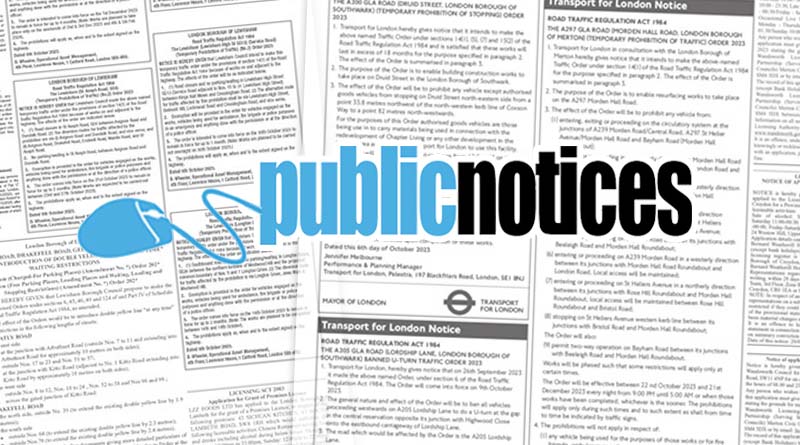Imagine going years without showering in your own home, or months without stepping outside your front door.
That’s because hundreds of disabled and elderly people are enduring prolonged waits for home adaptations and occupational therapy assessments.
It’s a bleak existence and one faced by vulnerable people all over Southwark and south London.
Data obtained by this paper has revealed the shocking waiting times people face while needing vital equipment – such as hoists, ramps and stair lifts – to be fitted with their homes.
Across Southwark, Lewisham, Greenwich and Lambeth, over 2,000 people are on waiting lists for occupational therapy assessments or housing adaptations, our Freedom of Information (FOI) request revealed.
The data showed that 146 people have been waiting over a year for adaptations although individual cases suggest some are forced to wait far longer.
We also found that Lewisham Council was not even tracking individual waiting times despite government rules stipulating nobody must wait longer than eighteen months.
Council figures and charities say local authorities have been hamstrung by a shortage of occupational therapists and pandemic-related backlogs.
How are people being affected?
Stock image of an adapted bathroom. Credit: Andreas Schalber (Creative Commons)
Disabled and vulnerable people face a long drawn-out process before they get the home adaptations they need.
First, they must book an assessment with their local council where an occupational therapist reviews their situation and decides whether to recommend adaptations.
Once the adaptations are recommended by the occupational therapist, eligible tenants can apply for a Disabled Facilities Grant (DFG) worth up to £30,000.
The DFG application process is supposed to take a maximum of 18 months – six months to approve and a year to complete the work.
But Jackie, who also lives in Bermondsey, claims she’s been waiting 22 months since an occupational therapist recommended a bathroom adaptation.
Suffering from arthritis and recovering from a knee replacement, she gets a lift to her sister’s home in Dulwich every time she needs a wash – a forty-minute drive away.
Jackie, who has had a knee replacement, claims an occupational therapist first visited in June 2022 but a mix-up meant the council lost her records.
It meant she had to reapply for an adaptation in June 2023 which she is still waiting for.
Inclusion London, a charity supporting deaf and disabled people, said those waiting on adaptations were often forced to rely on family members.
A spokesperson said: “Many disabled people are forced to be reliant on their family members or partners to assist them in the home meaning if they’re not there they can’t cook, wash themselves or sometimes even leave the house.
“This massively impacts people’s ability to live independent lives.”
Karen Jordan, from Bermondsey, uses a wheelchair. She’s only waited four months for a ramp so far but even this is severely impacting her life.
 Karen Jordan is among the Southwark residents desperately needing adaptations to her home
Karen Jordan is among the Southwark residents desperately needing adaptations to her home
When she needs to leave the house, she either needs a neighbour’s help to lift her wheelchair out, or drags it out herself using “pure willpower”.
Karen, 66, says: “All they see is a ramp. They forget there’s a human being sitting here… I cry and I swear. It’s a nightmare.”
Largely unable to get her wheelchair outside, she has to rely on expensive taxi fares, meaning she rarely visits friends and family.
Bermondsey councillor Rachel Bentley said Karen and Jackie are not alone, and that her case work is dominated by people in similar situations.
She said a “severely disabled man” on Bermondsey’s Arnold Estate has been waiting over twelve months for an accessible bathroom.
“Delays in occupational therapy assessments have left too many families in a completely unacceptable place,” she said. “Every week I have messages from people in dreadful conditions stuck in their homes. Sometimes even the most desperate families are told by our council that their needs are ‘non-urgent’.”
The Figures
Occupational therapy assessments
 An occupational therapist working with a child (Creative Commons) Credit: PICRYL
An occupational therapist working with a child (Creative Commons) Credit: PICRYL
In Southwark, 155 people are waiting for an occupational therapy assessment with 62 waiting for between three and six months.
Figures show waiting times have been spiralling out of control in recent years.
In 2020, the average waiting time for an assessment was 75 days but this increased 144 per cent to 183 days in 2023, our FOI revealed.
The situation is similar in neighbouring boroughs. In Lewisham, 51 people have been waiting over three months, and there are 99 in Greenwich.
However, Southwark Council says it’s working hard to reduce waiting times and has made a good start this year.
In February 2024, the average waiting time for an assessment reduced to 71 days, down from 129 days in February 2023.
Southwark Council credited its new occupational therapist recruitment and retention strategy as having a “very positive impact on its staffing levels”.
Council-employed occupational therapists have also been offering residents temporary equipment – including ramps and grab rails – while they await permanent installations.
Home adaptations
 Stock image of a man in a wheelchair (Creative Commons)
Stock image of a man in a wheelchair (Creative Commons)
After people have their assessments, they need to apply for their DFG and then wait for a contractor to install their adaptations once it’s approved.
In Southwark, there are 242 people on the waiting list. There are roughly 267 in Lambeth and 342 in Greenwich.
In Southwark, 50 people have been waiting for over one year according to FOI response data.
Southwark Council also claimed nobody had waited longer than the recommended eighteen months, although Jackie disputes this.
In Lambeth, 36 people have been waiting for over a year, a figure rising to 60 in Greenwich.
Worryingly, between one and five people have been waiting over five years in Greenwich. The borough council was not more specific in its FOI data reveal.
In Lewisham, 101 people are on the waiting list but the authority said it doesn’t track individual waiting times.
This is despite the fact the government insists councils deliver adaptations within eighteen months of DFG applications being submitted.
Councils are only obliged to record average waiting times. Experts fear this means vulnerable individuals are falling through the gaps.
Lewisham Council was approached for comment.
What’s causing waiting times?
Occupational Therapist Shortages
A national shortage of occupational therapists has been identified by both Southwark Council and Inclusion London as a key reason for waiting times.
In 2019, ‘occupational therapist’ was added to the UK’s skilled shortage list amid huge pressure on the 4,100-strong workforce.
A survey by the Royal College of Occupational Therapists found 78 per cent of the workforce agreed their team wasn’t large enough to meet the demand.
63 per cent felt they were too busy to provide the level of care they’d like, the survey found.
While the UK population is ageing, recruitment isn’t keeping up. According to Bursting with Potential, an occupational therapy provider, not enough universities are offering courses and prospective students aren’t often aware about the career path.
Since 2020, the Home Office has offered fast-track visa route for occupational therapists coming from abroad.
Covid-19
According to Southwark Council, Covid-19 created a backlog of cases that it’s still working through.
While demand for occupational therapy assessment declined during lockdown, it said the post-pandemic recovery period had seen a spike in demand.
However, industry experts have been warning about a shortage of occupational therapists, and unsustainable demand, since before the pandemic.
Poorly-designed accessible homes
Some developers aren’t building accessible homes to the correct standard, according to Inclusion London.
The charity’s spokesperson said: “Another issue that we have heard from local authorities themselves, is that when developers agree to build accessible properties they don’t build it to the accessibility standard agreed upon and then councils themselves bear the cost of adapting it to make it fully wheelchair accessible.
“Disabled people move into properties after facing hefty waiting times which are supposed to be accessible and then aren’t.”
https://southwarknews.co.uk/featured/revealed-the-shocking-waiting-times-disabled-people-face-for-home-adaptations-in-south-london/





